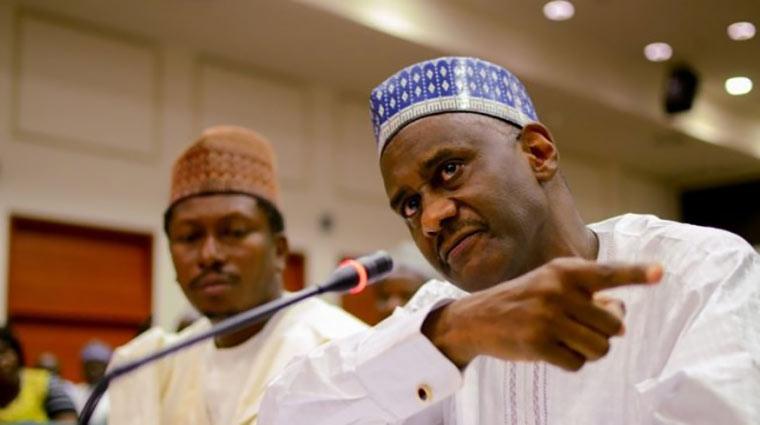The former Executive Secretary of the National Health Insurance Scheme (NHIS), Femi Thomas,
awaits judgment July 24, 2025, over his $2.2 million fraud trial.
He is undergoing trial over a fraud case involving a whopping $2,198,900.00.
The case is currently being heard by Justice Ayokunle Faji at the Federal High Court in Ikoyi, Lagos.
The court has scheduled the judgment for July 24, 2025.
Thomas is on trial along with Kabiru Sidi, a bureau de change operator, for seven different charges related to money laundering connected to the alleged fraud.
Six of the charges against Thomas involve money laundering and illegally transferring funds linked to criminal activities, while Sidi is only being charged on one count related to making false statements to officials.
One of the charges states that Thomas allegedly helped hide the illegal source of the $2,198,900.00 on July 3, 2015, in Lagos, in violation of the Money Laundering (Prohibition) Act.
During the court session, the prosecution, led by Ekele Iheanacho, informed the court that they had submitted their final arguments on May 5 and May 9, 2025, respectively, asking for both defendants to be found guilty.
Iheanacho explained that the prosecution called six witnesses to testify against Thomas
He also noted that Thomas made a “no-case submission,” which was rejected by a higher court that stated enough evidence had been presented for the trial to continue.
The case centers around how Thomas claims he earned the money in question.
Read also:
- EFCC recovers NHIS’s N1.4bn from commercial banks
- EFCC arrests former NHIS boss Usman Yusuf over alleged ₦4 Billion fraud
- NHIS ex-boss, Gumi express shock at bandits’ forest hideouts
He stated that he made the funds primarily from his farming businesses.
However, his financial records present conflicting details, reporting a profit of just N3.9 million in 2014, while he claimed a much higher revenue of N354 million in court.
Iheanacho argued that the court cannot simply choose to believe one version over the other since the documents contradict Thomas’s statements.
He emphasized that written evidence is crucial for verifying oral statements, and any inconsistencies make both types of evidence unreliable.
Thomas called upon a witness, who was involved in preparing his financial documents.
When questioned about these documents, the witness referred to large sums of money claimed as loans and deposits for shares, asserting that these funds didn’t come from business profits as Thomas suggested.






